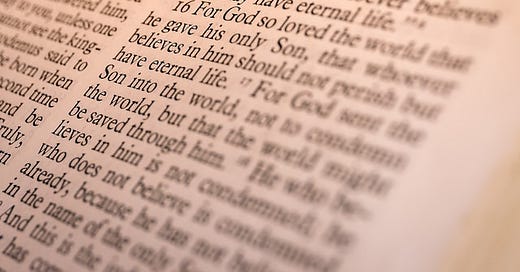Are Adherents to Other Religions Saved?
A Major Point of Contention Between Conservative and Progressive Christians
Let's talk about the Aztecs.
They lived in what we call Mexico today. They thrived from the years 1300 to 1521, became a dominant power in their area, and developed a vibrant culture.
But, there's no way in hell they could have ever heard about Jesus Christ before Europeans brought the Gospel and took their gold.
It's not their fault that God—who presumably created them as human beings—planted them in a land where it was impossible for them to hear the Gospel, and therefore equally impossible for them to accept Jesus Christ as Lord and Savior.
Now, here's the big theological question:
Are the Aztecs who never heard about Jesus damned to hell for all eternity because God created them and placed them in an impossible situation?
Anyone who has any sense of compassion is naturally going to cringe at the thought that they would burn in hell by default. We all know that it's just plain wrong morally.
A theological headache for conservatives
This is a theological conundrum for conservative Christians. While deep down they realize it just doesn't make sense for the Aztecs to burn in hell, they are not willing to adjust their core theology.
This is where conservative theologians get creative and find a way to maintain doctrinal teachings and avoid condemning the Aztecs.
Here are a couple of connective theological solutions:
Because the Aztecs didn't have a chance, God judges them according to their works…but once they've heard the Gospel, it's all on them.
They may not have the opportunity to accept Jesus Christ as Lord and Savior in their earthly lives, but they will be given the opportunity after their death.
These are a couple of ways they are able to maintain the absolute necessity of accepting Christ into one's personal life as Lord, but avoid painting a picture of a God who sets people up for failure and then punishes them for it.
It seems to me that there is an implied recognition of an inherent problem with the doctrinal understanding of Christian salvation expressed through this need to adapt conservative theology. For conservatives, this kind of question poses a real struggle.
Progressive Christian openness and acceptance
Progressive theologians don't struggle as much with this issue because they look at God's relationship with other religions very differently.
Rather than assuming that God only speaks through the Judeo-Christian tradition, we tend to believe that God works with people wherever they are through whatever religious tradition they are a part of.
Jews have access to the reality we call God food Judaism.
Muslims have access to the reality we call God through Islam.
Hindus have access to the reality we call God through Hinduism.
Buddhists have access to the reality we call God through Buddhism.
Wiccans have access to the reality we call God through Wicca.
Druids have access to the reality we call God through Druidry.
And so on and so forth.
That means the Aztecs had access to the reality we call God through their own native religion.
As a result, we progressive Christians are more open to what other religions have to say about God.
Very simply, I believe that listening to the wisdom and insights of others who identify with different religions empowers me to become a better Christian.
Acceptance of other religions doesn't mean "anything goes"
Don't get me wrong, this is not a blank check for religions to do whatever they want. I am not sanctifying everything that was done in the religion.
For example, I will not say that the human sacrifices the Aztecs engaged in were holy acts. But, I will say that the atrocity does not negate the religious tradition's ability to help people connect with God.
(And, remember, there is evidence in the Hebrew Bible that indicates the ancient Israelites engaged in human sacrifice themselves at one point. Nonetheless, this doesn't negate the validity of the tradition, which includes Christianity. But that may be for another article.)
Instead, we progressive Christians recognize the imperfections of the Aztec religion, just as we recognize the imperfections of our own.
No religion is perfect, because people aren't perfect. The nature of religion is to be a human, cultural expression of our common quest to understand the Divine. No religion has a monopoly on God, including Christianity.
Can people of other religions be saved? Yes!
A popular way of expressing this understanding of how God works through various religions is to say that we are all on different paths going up the same mountain.
Since each religion is salvific in itself (and the way this works out theologically among progressives varies), those of other religions don’t need to convert to Christianity in order to experience "salvation".
That's one perspective, anyway.
An alternative perspective
There's another perspective that I find fascinating that appeared on the scene a couple of decades ago. That perspective calls into question the singularity of an ultimate religious end.
In other words, the theologian who proposes this actually calls into question the mountain itself.
To find out more about this surprisingly fresh angle, read the next newsletter.
Until next time,
Peace, Bo
www.evolvingchristianfaith.net
Want to Know More About My Perspective?
Feel free to pick up my book, Drinking from an Empty Glass: Living Out of a Meaningless Spirituality on Amazon.



